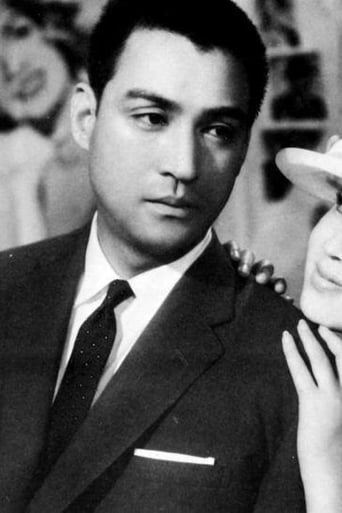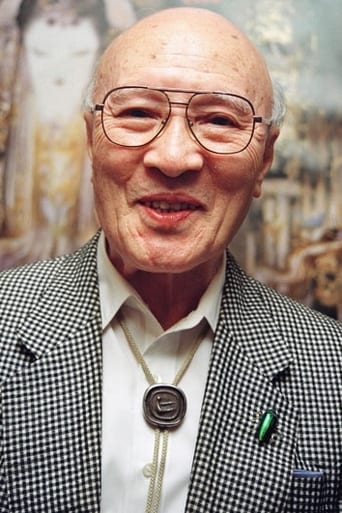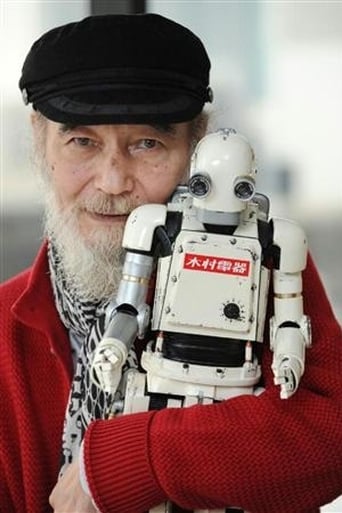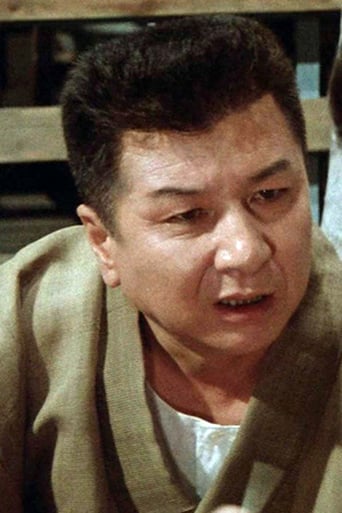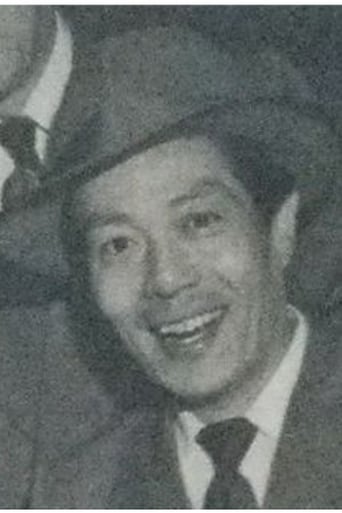JinRoz
For all the hype it got I was expecting a lot more!
Sarita Rafferty
There are moments that feel comical, some horrific, and some downright inspiring but the tonal shifts hardly matter as the end results come to a film that's perfect for this time.
Staci Frederick
Blistering performances.
Dana
An old-fashioned movie made with new-fashioned finesse.
chaos-rampant
A harrowing masterpiece on the sheer madness and despair of war, Fires on the Plain (Nobi) is not going to be to everybody's taste: this is a war movie in the truest possible sense of the term, one that resorts neither to flag-waving patriotism nor saccharine sentimentality. Nobi cuts deep, it's ugly, tenebrous and bleak as few things ever committed on celluloid will ever be. This is war behind the cannons, with no triumphs or heroes, no moral victories or defeats to be had, just a handful of gaunt and terrible-looking men strewn across a land ravaged by war like penitents fleeing a great disaster. The characters defy moral judgment because they are creatures beset by a great woe, a woe that does not permit questions of a moral nature. War and survival. Pitting one's will against the other's in a battlefield arena. The loser is simply removed from existence.Tamura, soldier in the Japanese Imperial army, is discharged from his platoon and ordered to report in a nearby hospital on account of him coughing blood and being disliked by the rest of the platoon. He's told to never come back and instead commit suicide by hand grenade in case the hospital rejects him. Which it does. The hospital is nothing but a shack made of wooden planks and the hospital surgeon simply tells him that if he's capable of walking he's just fine. It is in that shabby excuse of a hospital that one of the most harrowing scenes of the film takes place. As the area is carpet bombed by American planes the doctors and those who can walk and sustain themselves flee from the hospital and into the woods. Moments before the hospital is blown to pieces, the gaunt and crippled figures of the sick and injured crawl out of it in every manner of posture, dressed in their sickly white robes, as if the building is some kind of beast spewing viscera and filth out upon the earth.That is Nobi's greatest success; the stark and brooding depiction of the suffering of war in simple but evocative images, without melodrama or pseudo-heroism. Soldiers cross a marsh, wading knee-deep in mud, move across the opposite bank and into a field only to discover enemy tanks hiding in the woods, their lights shining like malignant eyes as they scan the dark. A procession of injured soldiers, dirty and half-mad, crossing a road, dropping to the ground on the sound of enemy planes. Buzzards feasting on a pile of dead bodies. An abandoned village. A mad soldier that believes himself to be Buddha sitting under a tree, covered with flies and his own excrement, offering his arm to be eaten by Tamura when he's dead. These are the images Kon Ichikawa conjures for our eyes, merciless and unflinching in their poignancy but honest and raw.Nobi doesn't rush to get somewhere. It is content to follow Tamura's travels through the war-torn land as he tries to reach the regrouping center of Palompa, and observe the madness and obscenities of war. The movie wades through the sludge of the horror of war, slow and brooding, just like the characters it follows. The final thirty minutes with Tamura taking refuge with two deserters who feed on 'monkey meat' are the closest Nobi comes to adhering to conventional narratives and they're no less powerful for that matter. Strikingly photographed in black and white, with great performances from the cast, and Ichikawa's assured direction, Nobi is not only among the best war movies to be made but also among the finest of Japanese cinema.
GyatsoLa
I got this movie out a week after the death of Ichikawa Kon - I suppose if there is one way to mark the passing of a great director, its to raise a glass of wine to him while watching one of his greatest movies. Ichikawa had one of the finest careers in Japanese film, but as he never had a distinctive style or theme he often seems to be overlooked compared to his near contemporaries such as Ozu and Kurosawa (he was a little younger than them, but not by much). He is one of those directors who defies auteur theories - its likely that his wife (who wrote the screenplay for this and many other of his movies) was as much responsible for the quality of the movies as he was. But at his best, he was as good as any Japanese film maker at the time. In particular, he had great technical skills, allowing him to tell complex stories in an accessible manner. But in terms of theme, this movie could hardly be simpler - war is hell. No really, its seriously hell.Fire on the Plain doesn't follow the normal war genre rules. There is no real beginning - we start as the wretched Tamura, who is a regular private (although it is implied he is more thoughtful and educated than most of the others - at one stage it is shown he understands English, but he clams up when the others ask him how he knows it) is ordered to hospital, as his unit is already in an appalling state. The soldiers are defeated and starving to death. They are no longer an army, just a rag bag group of refugees - hunted by the locals, and pretty much ignored by the Americans, who have bigger fish to fry. Hunger and despair is driving the soldiers to the edge and beyond of madness.In typical Ichikawa style, its not all just grim - its oddly funny in parts (a very black humour of course).The high points of this movie to me are the outstanding performances from the leads and the vivid photography. The characters, in all their humanity, but also their complete loss of humanity, are all too believable. This is that rare film - one which will refuse to erase itself from your head, even if you want to forget it.
ewarn-1
I saw this in 1993 on a VHS tape but have been unable to find it at any source since. This is a very bleak and uncompromising look at the last days of the Japanese Army in the Phillipines. Anyone with an interest in the Pacific war would do well to view this film and see what conditions the other side fought under.From what I can tell, this is historically accurate, and depicts how easily men can descend into complete barbarism. I understand the Japanese Army was completely cut off from any re-supply in the Phillipines by 1945, so there is no doubt many of the horrific incidents depicted here happened. I might not have been able to identify with the film's characters, but I appreciate their humanity and struggle to survive. If I had to compile a list of the ten greatest war films, this film would be on it. See it if you can get it.
Daniel Feit
One person wrote: "To me it raises a question most Americans would rather avoid: If the Japanese military was so beaten down at this point in the war, why was it necessary to nuke Hiroshima?" This question is really a comment which reflects a certain pre-disposition. One answer is: because Japan had not yet surrendered and stopped fighting.However, if the Japanese military was so beaten down at this point in the war why didn't the Japanese leaders stop the fighting and stop the suffering by stopping the war? This criticism of the atomic bomb fails to recognize that no one knew in August 1945 when Japan would stop fighting. Also this approach seems not to recognize that even without an atomic bomb the fighting and dying would continue as long as the war continued, not only in Japan but in China and elsewhere. Even another two months of war (and conventional bombing and blockade) would have killed more people than died at Hiroshima AND Nagasaki combined.a friend of DF NY

